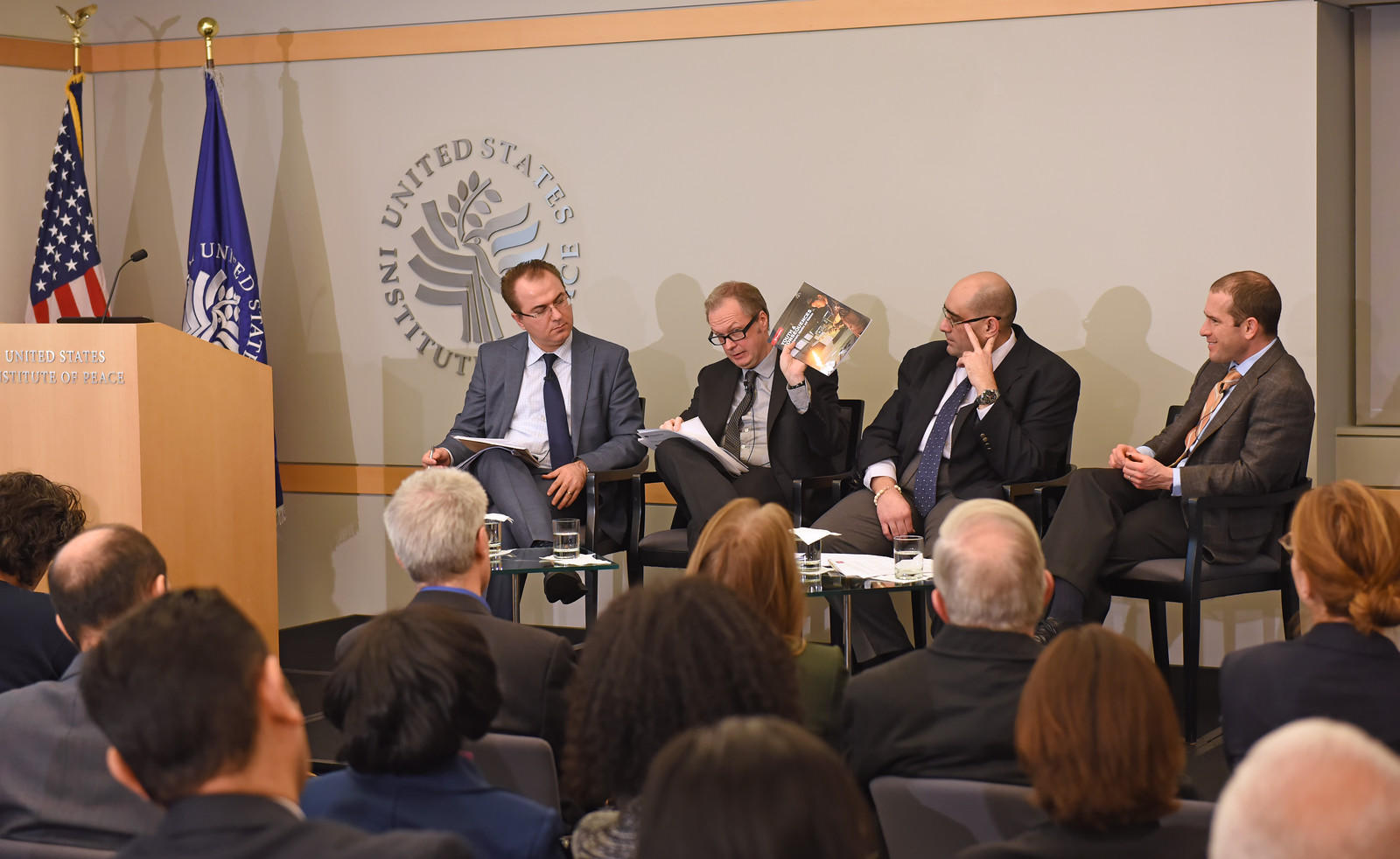Iraq: Can Good Governance Erode Support for Militants?
Read the Event CoverageExtremist groups like ISIS have seized control in swaths of Iraq and Syria in part because they tout themselves as an alternative to corrupt and inept government at all levels. USIP hosted a discussion on January 6, 2016 highlighting new research by the global humanitarian and development organization Mercy Corps on the connection between citizens’ perceptions of governance and public support for armed opposition.

Panelists explored how good governance may erode the pull of sectarian identity politics, and showcase instances when governance successes have appeared to reduce support for armed opposition and violence. USIP experts discussed the research results in light of what the Institute’s staff and partners on the ground have learned in the course of their conflict mitigation and peacebuilding work. Continue the conversation on Twitter with #GovernanceIraq.
Panelists
Nancy Lindborg
President, USIP
Dr. Jacob N. Shapiro
Associate Professor of Politics and International Affairs, Princeton University
Michael Young
Senior Advisor, Mercy Corps
Dr. Elie Abouaoun
Director of Middle East Programs, USIP
Sarhang Hamasaeed
Senior Program Officer, USIP



